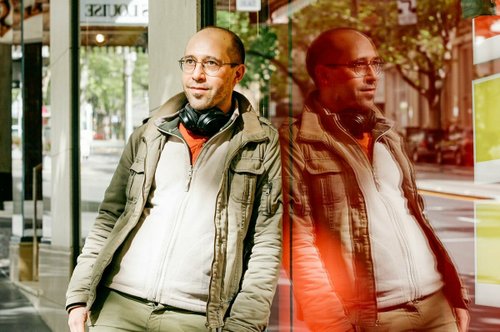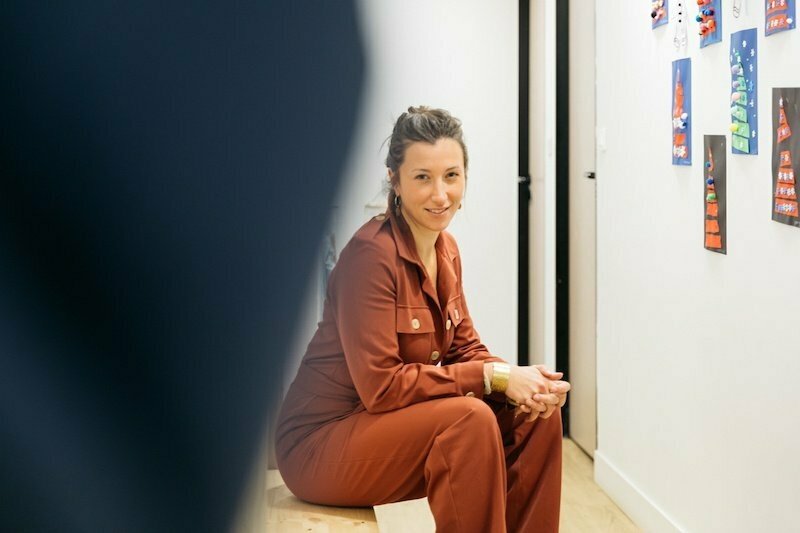Yes, philosophy can help us to cope during this crisis
Jan 14, 2021
6 mins

If you’re embarrassed to admit you don’t know the difference between ethics and existentialism, but every day raises a million questions in your head, then you should read Marie Robert. The Frenchwoman’s background is impressive. She has a doctorate in philosophy from the Sorbonne, she’s a writer, a regular on French radio, and a well-known podcaster and Instagrammer where she goes by the handle, Philosophy is sexy. But don’t be fooled by her lofty credentials, Robert is all about making philosophy accessible to everyone. So we asked her how it might help us during the current health crisis, which has turned our relationship with work on its head. Human beings are social animals. So, whether you are telecommuting for the time being or your job status is up in the air, could Plato or Kant possibly help? Does philosophical thought have anything to add in the age of Covid-19? These are deep questions, but don’t fret—this interview with Robert won’t hurt your brain.
The current health crisis has kept many employees from working in an office. Business owners have been forced to shut their doors and numerous professionals have lost their jobs or are afraid of being fired. How can philosophy help us to survive such uncertain times?
Whether in our personal or professional lives, the current health crisis has delivered many life lessons. Working parents suddenly found their children a challenge, while some people discovered they weren’t so keen on their jobs after all. Philosophy embraces life’s most difficult lessons; it gives us the tools to reflect deeply and analyze our current situation. Normally, there is no time for reflection: tasks must be completed on time and schedules leave no wiggle room. Philosophy, on the other hand, invites us to take a step back and carefully consider the world around us.
If you’ve just lost your job or been out of work for ages, then deep reflection might seem futile at first. In practical terms, which books or philosophical movements should we study?
Before studying the topic in depth, the first step should be reflected. For example, if you’re in the shower or having your morning coffee, stop and ask yourself: “Am I, at this moment, being true to myself?” This is the starting point of Greek philosophy, which involves questioning everything around us.
At times like these, the concept of not allowing ourselves to be defeated by things outside our control is incredibly valuable.
Being true to oneself is difficult under the current circumstances. How can philosophy help?
When you aren’t being true to yourself, philosophy tells us to strive for action. If I’m made redundant, that’s an opportunity to ask myself whether I’d like to work in the same sector again or whether I want to make a complete change. If the answer is yes, then I can ask myself if I want to take a training course and if it’s the right time. If I’ve been put on short-time work, I still have a bit of room to maneuver. Naturally, this kind of situation can really wear you down. You may be feeling shattered by everything going on around you, but you have more flexibility than you might imagine. Philosophy is a reminder that, despite everything we’re going through, we all have free will, the ability to think, and thus to act. There are always more moves we can make.
Of the various philosophical movements, which ones would have helped us to live better in 2020?
[Henri] Bergson is probably the most relevant philosopher for what we’re experiencing. He says we are continuously creating our own lives. When creating, the creator experiences periods of self-doubt, difficulty, or exhaustion, but always with the joy that comes with creating. When I’m taking a class or revamping my CV, I’m not just putting up with the necessities of professional life; I’m the creator and agent. You can also look to the Stoics, who posited that humans must accept what they cannot change. At times like these, the concept of not allowing ourselves to be defeated by things outside our control is incredibly valuable. Or you can read Epicurus [a philosopher in ancient Greece]. He reminds us that happiness is peace of body and soul. If you look for happiness outside yourself, according to the Epicureans, you are doomed to despair. So, even in these trying times, you can achieve peace of body by going out for a jog after dealing with all your emails for the day.
What about unemployment? How can philosophy help us to deal with that kind of social exclusion?
Because of our current obsession with work, being unemployed makes us feel like we’re outside of society. Consumed by financial worries, we panic. But philosophically speaking, we are just as active when not working because we finally have time to think. The ancient Greeks believed that not working and taking part in civic life were important. Today, you can connect with other people by volunteering or by getting involved in different projects. Once any financial issues have been sorted, you can take a step back and figure out how you can get where you want to be, professionally speaking. Those who have this ability are the ones who end up involved in projects that take their professional lives in a completely different direction.
So, what you’re saying is, philosophy really can help us to get through any number of crises. Then why doesn’t it get more attention?
Because people have the impression that it’s old-fashioned and elitist, whereas it applies to each one of us. That’s what my approach is all about [through her podcast and her Instagram in particular, editor’s note]: it’s not easy reading, of course, but philosophy can be accessible.
In addition to being a columnist and influencer, you set up your own Montessori school in Paris, with philosophy workshops for kids aged 5 and older. Can philosophy help children and adults to deal with future crises?
Totally. In today’s educational system, you learn the “right” way to solve a problem, the only way to get from point A to point B. In philosophy, it’s not like this at all. You realize that things are more complicated than you might think. When we introduce children to deeper reflection at an early age, they learn about nuance, building arguments, and precision in language. That’s how you prepare them for adult life, which is full of complexity.
Philosophy doesn’t give you a method but rather forces you to think and change your perspective. It makes you an active player.
And what role can philosophy play in business?
Companies, like individuals, are used to thinking about the kind of world they want to be part of. More and more businesses are turning to philosophers to outline their vision, redefine their values and even reflect on their managerial practices. For employees, philosophy forces them to think about what they are doing and why they are doing it. Do I understand the email I’m sending? Do I understand why I’m ticking this box? If you don’t understand that those numbers you are crunching will help to build a bridge on the other side of the world, that’s a genuine shortcoming.
Many professionals now work with coaches. What’s the difference between a philosophical outlook and what is called “a positive attitude” in the field of self-help?
Self-help is based on philosophy, but it’s like the remixed version of a song. It strives to give you a method or proper approach to getting things done. Self-help will tell you to make a list of your favorite things every day, for example, and you’ll do it for maybe three days, and then the one day you don’t, you feel guilty. Philosophy doesn’t give you a method but rather forces you to think and change your perspective. It makes you an active player.
Feeling like you are a stranger to yourself is alienating and philosophy helps you to ask yourself questions so that you don’t feel that way about work.
What’s the best way to learn more about philosophy?
I’d start with fundamental texts such as Letter to Menoeceus by Epicurus, which is a super practical guide to happiness. In this book, the thinker, who is good at explaining things, reminds us that wisdom is not just for great philosophers, but an attitude you can foster in everyday life. According to him, happiness means going back to simple pleasures, appreciating them, and knowing how to celebrate your very existence. And your fears keep you from being happy. You can also read Montaigne’s Essays to consider every aspect of life wisely. With Montaigne, you learn that you must live life at your own pace instead of following someone else’s. After that, you can also get my latest book! [she smiles]. Penelope’s Journey tells the story of a woman who leaves her family and job for a journey of self-discovery and who ends up discovering philosophy along the way.
Second-last question—this goes back to Philosophy 101. Work: freedom or alienation?
There are several ways of seeing work: [German philosopher Friedrich] Nietzsche posited the idea of alienation through work, while Bergson makes us creators. Work becomes alienating when you lose sight of what you’re doing and when you’re just going through the motions, but not when it’s meaningful. Feeling like you are a stranger to yourself is alienating and philosophy helps you to ask yourself questions so that you don’t feel that way about work. Work allows you to ascribe meaning to it and to understand that you are a part of something bigger that is stimulating.
Isn’t this search for meaning a kind of luxury?
It’s certainly hard to find meaning when you’re freelancing or moonlighting in a second job. Looking for meaning in the professional world can be dangerous when you do it by any means necessary. The younger generation really buys into this storytelling and they end up being disappointed with their professional experiences. They soon realize that their job isn’t stimulating or that they are underappreciated and underpaid. But, at the same time, that’s what work is. So I would talk about experiences. Every professional experience, whether unhappy or happy, allows us to learn and define who we are.
Translated by Andrea Schwam
Photo: Welcome to the Jungle
Follow Welcome to the Jungle on Facebook, LinkedIn, and Instagram, and subscribe to our newsletter to get our latest articles every day!

More inspiration: The Covid crisis

Debate: Should we mandate vaccines in the workplace?
We asked two bioethicists to help us unpack the arguments on both sides and explain the ethical principles underpinning our public-health policy.
Mar 01, 2022

‘Don’t give up’: 262 days of working in lockdown in Melbourne
Melbourne just made the record for the most 'confined' city in the world. What's it like being a worker there? These professionals testify.
Nov 09, 2021

Surviving the pandemic without government support
UK workers who were excluded from government support tell us about their year without work or income.
Jun 16, 2021

How the pandemic is driving a virtual tech boom
As the pandemic has accelerated the rise of remote work, it has also advanced the development of virtual technology, shaping the future of work.
Jun 08, 2021

How Covid is destroying the careers of mothers
Among Covid-19's countless victims are the careers of women forced to make the choice of leaving their jobs to care for their children and families.
Apr 22, 2021
The newsletter that does the job
Want to keep up with the latest articles? Twice a week you can receive stories, jobs, and tips in your inbox.

Looking for your next job?
Over 200,000 people have found a job with Welcome to the Jungle.
Explore jobs


